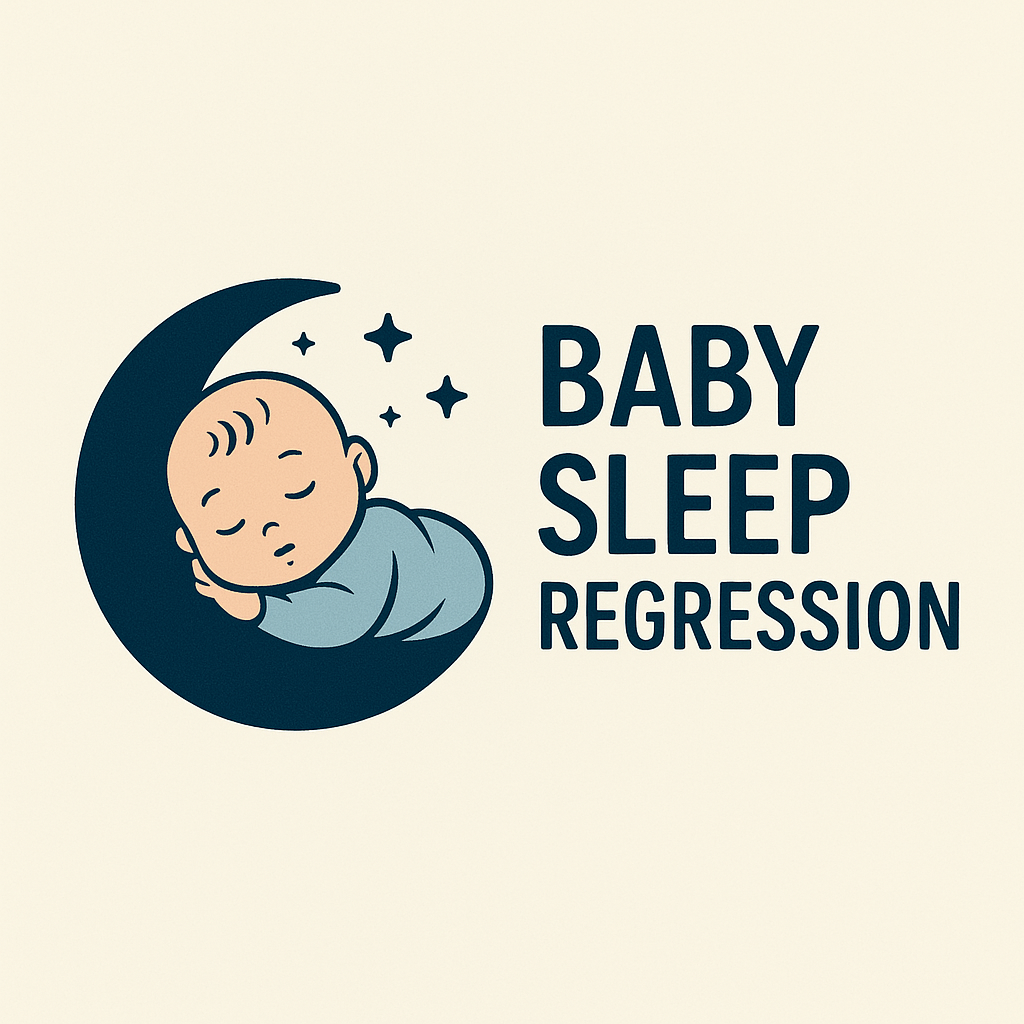How to Help Your Baby Through the 6 Month Sleep Regression

The 6-month sleep regression is a temporary phase that many parents experience. During this time, your baby’s sleep habits may suddenly shift, making it harder for them to sleep well. This 6-month sleep regression occurs because your baby is growing rapidly and developing new skills, which can disrupt their usual sleep patterns.
It’s normal to feel frustrated or stressed, but remember, you’re not alone—many parents face the 6-month sleep regression. Staying calm and maintaining a consistent routine can help your baby adjust more smoothly. Understanding their needs during this phase will make the 6-month sleep regression easier for both you and your baby.
Key Takeaways
The 6-month sleep regression is normal and happens as babies grow fast and learn new things.
Having the same bedtime routine every night helps your baby relax and get ready to sleep.
Make the sleep area cozy with a good temperature and little light for better rest.
Teach your baby to calm themselves so they can fall back asleep alone at night.
Daytime naps are important; keep a regular nap schedule to prevent your baby from being too tired at night.
Cutting down on nighttime feedings can help your baby sleep longer and build better sleep habits.
Be patient and open-minded; all babies are unique, and this stage will end soon.
If sleep problems last more than a few weeks, talk to a doctor to check for health issues.
What Is the 6 Month Sleep Regression?
Definition of Sleep Regression
A sleep regression happens when your baby’s sleep changes suddenly. It is a short-term issue that often occurs during growth stages. Experts explain it as:
A sleep regression is when a child’s sleep gets worse during certain growth phases. Common causes include: separation anxiety, trouble falling back asleep, hitting milestones, teething, too much activity before bed, changes in routine, and bad dreams.
At six months, your baby might wake up more at night. They may also fight naps or have trouble falling asleep. These changes can be tough, but they are a normal part of growing up.
Causes of the 6 Month Sleep Regression
Developmental Milestones
At six months, your baby is learning new and exciting skills. They might start sitting up, rolling over, or crawling. These activities make them curious and active, which can make sleep harder. Their brain is busy learning, so their sleep may get interrupted.
Some milestones that can affect sleep are:
Sitting up
Crawling
Walking
Changes in Routine or Environment
Babies like routines. Changes in their schedule or surroundings can upset their sleep. For example, traveling, moving, or meeting new caregivers can make them feel unsure. This can make it harder for them to relax and sleep.
Too much activity before bed can also be a problem. At this age, babies are more active and may feel too excited to sleep. A calm bedtime routine can help them settle down.
Teething and Physical Discomfort
Teething is a common reason for sleep problems in babies. Around six months, many babies start teething, which can hurt and make them cranky. This pain might wake them up or make it hard to fall asleep.
Other issues, like colds or feeling sick, can also mess up sleep. If your baby is fussy or not sleeping well for days, check for teething or illness. Fixing these problems can help them sleep better.
Signs of the 6 Month Sleep Regression

Sleep Problems
Waking Up More at Night
Babies waking up often at night is a clear sign. Even if they used to sleep longer, they may now wake up many times. This happens because their brain is busy learning new things, which interrupts sleep.
Studies show that babies often wake more at six months. Fixing these sleep problems early can help their growth and learning later.
Evidence Type | Description |
|---|---|
Sleep Changes | Babies wake more and sleep less at six months. |
Growth Benefits | Better sleep recovery helps with talking and social skills. |
Trouble Falling Asleep
Many babies have a hard time falling asleep during this stage. They may feel too excited or uncomfortable to relax at bedtime. Teething pain or learning new skills can make it worse.
To help, create a calm bedtime routine. Read a story or sing a song to show it’s time for bed. Keeping the same bedtime and quiet surroundings can also make it easier for them to sleep.
Shorter Naps or Skipped Daytime Sleep
Daytime naps may also become shorter or skipped altogether. This can make your baby overtired, which makes nighttime sleep harder.
Make sure your baby naps in a quiet, cozy place. Proper naps during the day help them rest and avoid being too tired at night. This can improve their overall sleep.
Behavior Changes
More Fussiness or Clinginess
Babies going through this phase may cry more or want extra attention. They might be harder to calm down at bedtime. Studies show that a parent’s stress can make babies fussier.
Parents feeling stressed can make babies more upset at bedtime.
Babies may resist sleep because of emotional tension with parents.
Stay calm and comfort your baby. Hold them or gently rock them to help them feel safe.
Fighting Bedtime Routines
Your baby might resist bedtime routines during this time. They may refuse to follow their usual pre-sleep steps or fight going to bed. This often happens because they feel too excited or don’t want to be apart from you.
Set up a simple and relaxing bedtime routine. Lower the lights, play soft music, or use white noise to create a peaceful setting. Over time, these steps will help your baby feel calm and ready for sleep.
How Long Does the 6 Month Sleep Regression Last?
Typical Duration
The 6-month sleep regression is a short-term phase. Most babies have sleep troubles for a few weeks before improving. Usually, this phase lasts about 2 to 4 weeks. During this time, your baby’s brain is learning new things. These changes can make it harder for them to sleep well.
Even though it’s tough, this phase won’t last forever. Keeping your baby’s sleep routine steady can help them adjust faster. If the sleep problems go on for more than a month, check for other reasons affecting their sleep.
Factors That May Influence the Length
Different things can affect how long this phase lasts. Knowing these can help you handle it better and support your baby.
Developmental Milestones: Babies grow at their own speed. If your baby is learning to crawl or sit up, sleep may stay tricky until they master it. Practicing these skills can make it harder for them to relax at night.
Consistency in Routine: A steady routine makes babies feel safe. Big changes, like traveling or meeting new caregivers, can make this phase longer. Sticking to the same bedtime and nap times can help shorten it.
Physical Discomfort: Teething or being sick can disturb your baby’s sleep. If your baby seems upset or in pain, fixing these issues can help them rest better and end the phase sooner.
Parental Response: How you react to your baby waking up at night matters. Comfort them without starting new habits like rocking or feeding to sleep. This helps them learn to calm themselves and fall back asleep.
By spotting and fixing these issues, you can help your baby get through this phase easier. Remember, every baby is different, and their sleep regression may not be the same as others.
Strategies to Handle the 6 Month Sleep Regression
Set a Regular Bedtime Routine
Examples of relaxing activities before bed
Having a regular bedtime routine helps your baby feel calm. Simple activities before bed show your baby it’s time to relax. Try these:
Give your baby a warm bath to help them unwind.
Gently rub their arms and legs to comfort them.
Play soft music to create a quiet, soothing mood.
Read a short story to keep them calm and focused.
These steps not only prepare your baby for sleep but also strengthen your bond.
Why timing matters
Sticking to the same bedtime every night is important. It helps your baby’s body know when it’s time to sleep. Studies show that a steady bedtime routine improves baby sleep, even during tough phases like this one. A predictable schedule makes your baby feel safe and helps them adjust faster.
Improve the Sleep Setting
Best room temperature and lighting
A good sleep setting can help your baby rest better. Keep the room between 68–72°F so they don’t get too hot or cold. Use dark curtains to block light, as darkness helps the body make melatonin, which aids sleep. Research shows that keeping the room dark helps babies sleep better, even during sleep regressions.
Using calming sounds or items
White noise machines or apps can block outside noises that might wake your baby. The steady sound reminds them of the womb, making them feel safe. Other items, like a cozy sleep sack, can also help them feel secure and ready to sleep. These small changes can create a peaceful space for better rest.
Help Your Baby Learn to Self-Soothe
Steps to teach self-soothing
Teaching your baby to calm themselves is very helpful. Put your baby in their crib when they’re sleepy but still awake. This helps them connect the crib with falling asleep. If they cry, wait a little before going to them. Slowly increase the waiting time so they learn to settle on their own.
Avoid depending too much on sleep aids
It’s easy to rock or feed your baby to sleep, but relying on these can make self-soothing harder. Instead, focus on a steady bedtime routine and a calm sleep setting. Teaching your baby to self-soothe builds healthy sleep habits for the future.
Focus on Daytime Sleep
Making sure naps fit your baby’s age
Daytime naps are very important for your baby’s sleep. At six months, babies usually need two or three naps daily. Each nap should last about 1 to 2 hours. These naps stop your baby from getting too tired, which can mess up nighttime sleep. Watch for signs like rubbing eyes or fussiness to know when they need a nap.
Set up a regular nap schedule to help your baby rest. Use a quiet and dim room to show it’s nap time. A steady routine teaches your baby that these times are for sleeping, making naps easier.
Balancing naps with nighttime sleep
Naps are helpful, but too much daytime sleep can hurt nighttime rest. Find a balance so your baby feels rested but not awake too long before bed. Avoid naps close to bedtime, as this can make falling asleep harder.
If naps are difficult, adjust wake times between naps. At six months, babies can stay awake for 2 to 3 hours before napping. Keeping these times steady helps improve both day and night sleep.
Change Nighttime Feedings
Cutting down extra nighttime feedings
By six months, many babies don’t need frequent night feedings. Reducing these feedings helps them sleep longer. Slowly offer less milk or formula at night. This makes your baby eat more during the day, so they don’t wake up hungry.
Too much feeding at night slows ghrelin, a hunger hormone.
Lower ghrelin levels help babies sleep longer without waking for food.
Nighttime feeding affects sleep patterns. Cutting extra feeds helps their body clock work better.
Helping your baby sleep longer
To improve nighttime sleep, avoid feeding right before bed. Instead, read a story or sing a lullaby to calm them. This teaches your baby to fall asleep without needing food.
If your baby wakes at night, wait a few minutes before going to them. They might fall back asleep on their own. Gradually waiting longer helps them learn to calm themselves, which improves sleep.
Stay Patient and Adapt
Changing your goals during this phase
The 6-month sleep regression can be hard, but adjust your goals. Your baby is growing and learning, which can temporarily affect sleep. Focus on small wins, like a longer nap or fewer wake-ups.
This phase won’t last forever. Stick to routines and respond to your baby’s needs to help them adjust.
Watching and meeting your baby’s needs
Every baby is different, so their sleep regression may vary. Notice your baby’s signals and change your approach if needed. If they’re too tired, try an earlier bedtime. If teething bothers them, offer comfort like a teething toy or gentle rubs.
Your patience and flexibility matter a lot. By understanding your baby’s needs, you can guide them through this phase and build good sleep habits.
When to Seek Professional Help
Signs That May Indicate a Larger Issue
Ongoing sleep troubles lasting more than a few weeks
Most babies get through sleep regressions in a few weeks. If your baby’s sleep problems continue longer, it might mean something more serious. Watch for patterns that don’t improve, even with routines. Long-lasting sleep issues could point to health or developmental concerns.
Some babies have sleep problems because of neurodevelopmental disorders (NDD). These include conditions like Autism, Cerebral Palsy, or ADHD. Babies with these conditions may struggle with insomnia, being too sleepy, or trouble switching sleep stages. If you think your baby’s sleep issues might be related to development, getting expert advice can help.
Worries about your baby’s health
Sometimes, health problems cause sleep troubles. If your baby is very fussy or hard to calm, think about possible health issues. Breathing problems, crying a lot, or showing pain during sleep are signs to check out.
Tip: Write down your baby’s sleep habits, behaviors, and any odd symptoms. Share this with your doctor to find causes and solutions.
Talking to a Pediatrician or Sleep Expert
If sleep problems don’t stop or you see worrying signs, talk to a doctor. Pediatricians and sleep experts can check your baby’s sleep and health to see if help is needed.
Call your doctor if sleep issues last for weeks without getting better.
Get advice if your baby has breathing trouble or is very fussy.
A sleep expert can give specific tips for fixing ongoing sleep problems.
Experts can tell if your baby’s sleep troubles are normal or need extra care. Acting early helps your baby get the sleep they need to grow and stay healthy.
Note: Trust yourself as a parent. If something feels wrong with your baby’s sleep or behavior, ask for help. Your concerns matter, and professionals are ready to support you.
The 6-month sleep regression is a usual part of growing up. It shows your baby is hitting big milestones, like fewer naps or learning new things. This stage doesn’t last forever and can be handled with care. Keep routines steady and adjust to what your baby needs. Each baby is different, so ask for help if sleep problems continue. This phase will end, and your baby will sleep better again soon.
Tip: Look for small wins and enjoy progress to stay encouraged during this time.
FAQ
What is the 6-month sleep regression?
The 6-month sleep regression is a short phase when your baby’s sleep changes. It happens because of teething, milestones, or routine shifts. Babies may wake more, skip naps, or struggle to sleep.
How can I tell if my baby is going through it?
Watch for signs like waking up often, shorter naps, or fussiness. Your baby might resist bedtime routines or want extra attention. These changes usually happen quickly during growth stages.
How long does the 6-month sleep regression last?
This phase usually lasts 2 to 4 weeks. It depends on milestones, routines, and comfort. Keeping a steady schedule can help your baby adjust faster.
Should I change my baby’s bedtime routine?
No, keep the routine the same. A regular bedtime helps your baby feel safe and ready to sleep. Add calming activities like baths, soft music, or gentle massages.
Is it okay to let my baby cry during this phase?
Letting your baby fuss briefly is fine for self-soothing. Comfort them if they seem upset or in pain. Slowly wait longer before helping to teach them to calm down.
Can teething make the sleep regression worse?
Yes, teething can make sleep harder for your baby. Use teething toys or a cold cloth to ease gum pain. If needed, ask your doctor for safe remedies.
When should I seek professional help?
If sleep problems last over 4 weeks or your baby seems sick, talk to a doctor. Issues like breathing trouble, extreme fussiness, or delays may need expert advice.
How can I help my baby sleep better during this phase?
Make the room calm with dim lights and white noise. Stick to regular nap and bedtime schedules. Teach self-soothing by putting your baby down sleepy but awake. Avoid relying too much on rocking or feeding.
Tip: Be patient and flexible. Every baby is different, and this phase will end soon.
See Also
Easily Navigating the Challenges of 9 Month Sleep Regression
A 2025 Guide for Parents on 3-Month Sleep Regression
Understanding Sleep Regression Stages in Infants and Babies
Exploring the Causes and Solutions for 4-Month Sleep Regression

